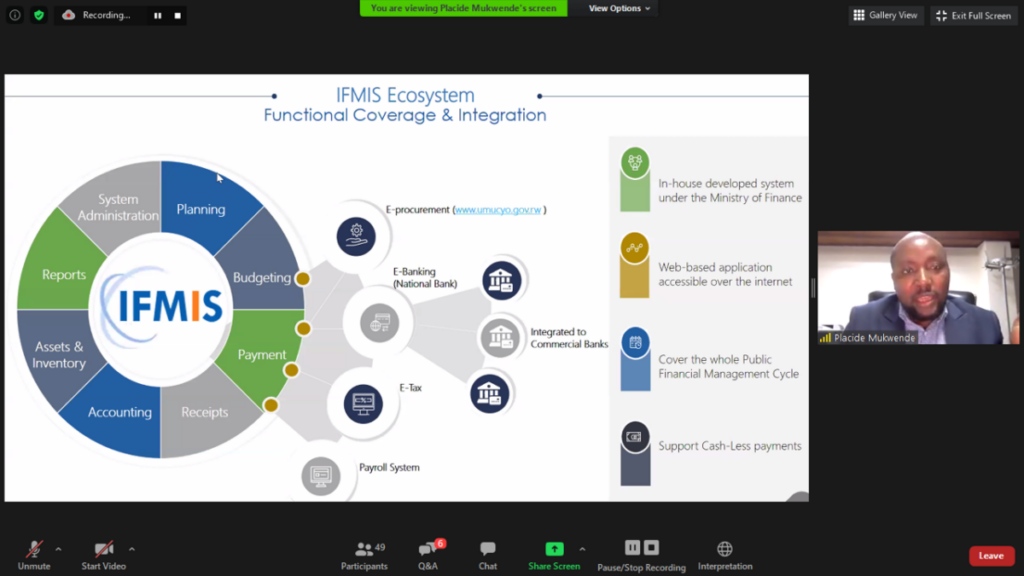On 2 July, CABRI’s online exchange, Financial management information systems: balancing flexibility and accountability during a crisis, brought together officials from ministries of finance and PFM experts to reflect on weaknesses and opportunities in these systems and ways to strengthen transparency and accountability. The online exchange, which forms part of a Policy Dialogue on Information Systems in PFM, began with an overview of the primary challenges countries face in the design and implementation of their FMIS and how CABRI is working with its member and participating countries to address these.

Caption: Presentation by Placide Mukwende of Rwanda
Thierno Amadou Bah (Head of the Budget Synthesis Division: Ministry of Budget, Guinea) then shared how lessons learnt during the Ebola crisis allowed the Government of Guinea to respond more efficiently during the current pandemic. This has included the establishment of dedicated COVID-19 accounts and funds, using a coding system for identification of line items related to the implementation of the response plan, and creating subsections in the administrative classification and inserting these into the information system database. Following Mr Bah’s presentation, Placide Mukwende (IFMIS Coordinator: Ministry of Finance and Economic Planning, Rwanda) provided insight into how Rwanda has maintained effective treasury operations and business continuity while also practising physical distancing. This has included streamlining and digitalising payment processes.
Ms Lorena Rivero del Paso (Manager for Technical Cooperation and Collaboration at the Global Initiative for Fiscal Transparency (GIFT)) reflected on the importance of good internal systems for control, transparency, auditing and decision making. Ms Rivero del Paso also introduced us to GIFT’s excellent Fiscal Data for Emergency Response: Guide for COVID-19, with which GIFT aims to identify the fiscal data required to ensure transparency in COVID-19 responses and inform the strategic prioritisation of data and processes to gather, organise and publish data.
Mr Hennie Swanepoel (Chief Director of Data Analysis: Budget Office, National Treasury of South Africa) responded to Ms Rivero del Paso’s presentation by reiterating that the fact that South Africa has a well-established Standard Chart of Accounts has been crucial in allowing identification of sources of funding for COVID-19 related expenditure, linking the sources to individual spending items and projects and reporting on these. Very early on, the National Treasury provided departments with detailed directions on how to transact and structure or adjust their charts in response to COVID-19.
Our Policy Dialogue on Information Systems in PFM will continue on 16 September with the first of a series of three virtual workshops, where budget and accounting officials from ministries of finance across the continent will consider the types of data and technological capabilities needed to effectively design and utilise information and communication technology.